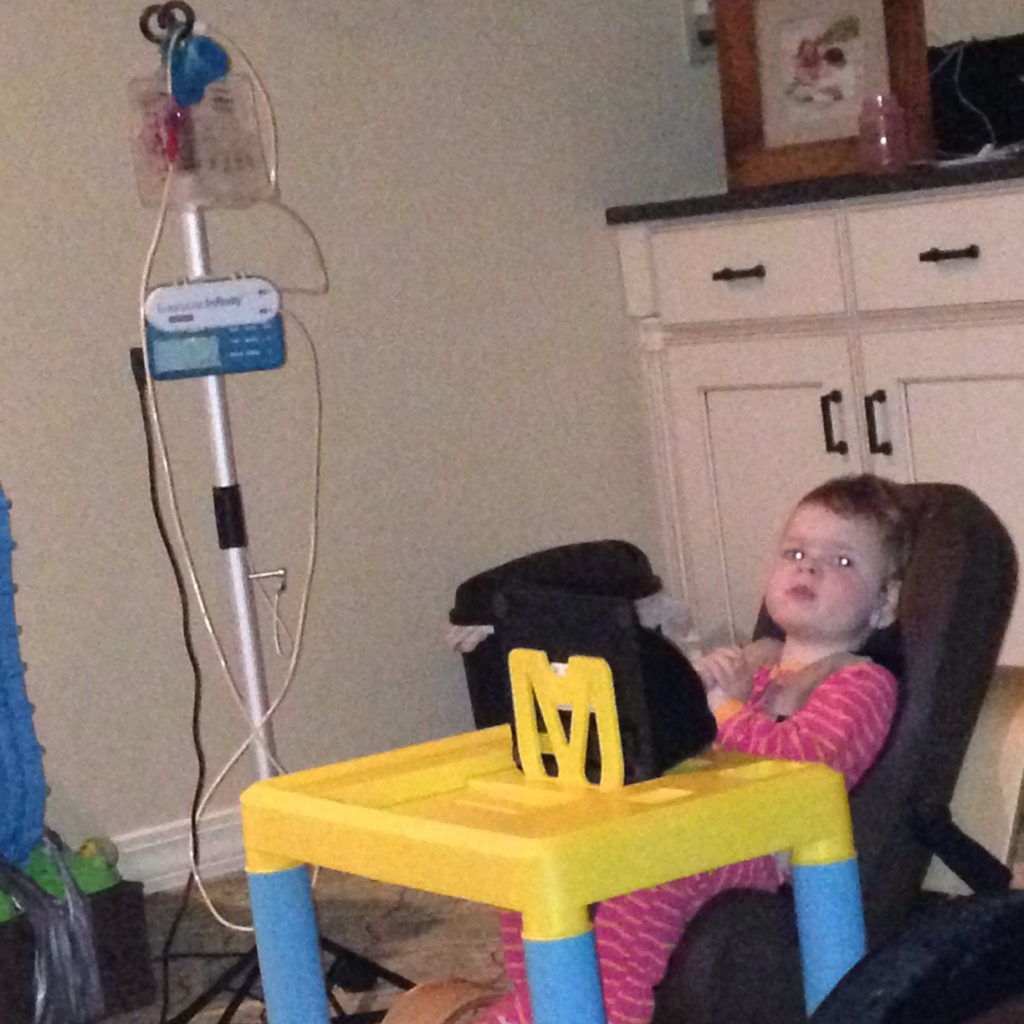The Complexities of Feeding Tubes
The Feeding Tube Awareness Foundation estimates that approximately 20% of children under 18 are tube-fed, and there are more than 350 conditions that can require children to need nutritional support through tube feeding. I am thankful for this medical intervention that has helped many children to live, grow, and thrive.
For us, the decision to get a feeding tube for June was complicated, and she did not have it placed until she was two and a half years old. Looking back, I wish it had been presented to us differently. Doctors were worried about June’s lack of weight gain and told us a feeding tube would help. I struggled with the choice because it was another problem to fix, and I knew it wasn’t the direction we wanted to be going, but I never saw it as a first sign that June was dying.
It was not until after June had her feeding tube placed that our family was connected with a palliative care physician. It was then that I learned loss of appetite could be the first sign of one’s body shutting down. I don’t know if that knowledge would have changed anything about our decision to place the feeding tube, but in hindsight I wish the doctors had been more direct about what a feeding tube meant for June and how appetite and death work together. Parents and caregivers need to be fully informed by their doctors about why an intervention is necessary, what might be the possible reasons for needing it, and any potential unintended side effects. Healthcare professionals shouldn’t assume that we realize the complete picture. After all, we don’t usually have their same medical background and level of knowledge, especially on death and dying when it comes to children.
In the end, getting June a feeding tube allowed her a little more time to meet her little brother George. I was newly pregnant when she had the surgery, and I often wonder if she would have lived long enough to meet him and spend time with him if we hadn’t.
No matter where a family is on their journey, there are many great resources to help navigate the complexities of feeding tubes. While I love embracing the positive stories surrounding this little medical device, I think it’s equally important to discuss the more complex experiences so that all families have a better idea of what’s at stake.
Resources
- Feeding Tube Awareness Foundation has a parent guide on tube feeding written by parents for parents.
- Courageous Parents Network has several videos where parents discuss the complexities around feeding tubes in children with life-limiting conditions.
- Complex Child Magazine has many articles on the subject too.







